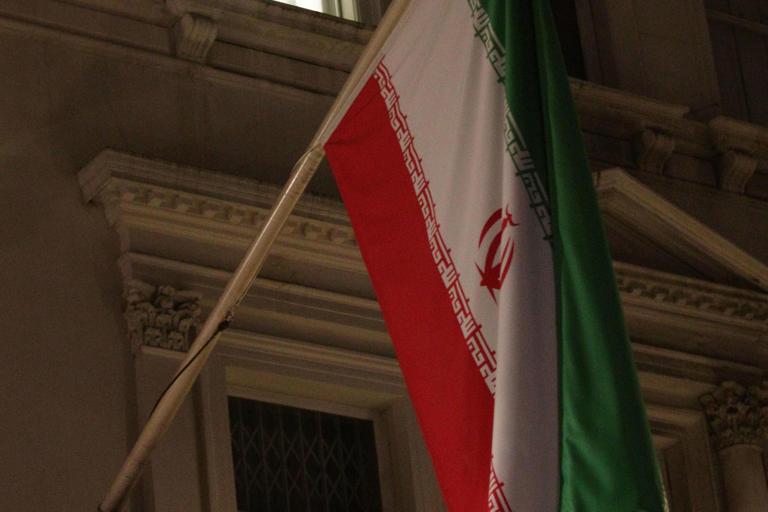
The Iranian octopus: Terror and the run-up to Ramadan
During the past week, an Israeli was wounded by a bomb placed on a major Israeli highway by a terrorist from Lebanon, and a Hamas gunman shot several people in Central Tel Aviv. Although they were separate attacks, both can be traced back to the Islamic Revolutionary Guard Corps, according to this week’s guest on “Our Middle East.”
A leading Arab and Islamic affairs analyst, former head of the Israel Broadcasting Authority and a Jerusalem Center for Public Affairs (JCPA) fellow, Yoni Ben Menahem joined JCPA president and host Dan Diker to discuss Iran’s long reach in the Middle East.
Ramadan
Ben Menahem describes a tight web of Iranian proxy terror activity in the Gaza Strip, Judea and Samaria, Damascus and Tehran, with meetings of important leaders a constant in the run-up to Ramadan.
As we saw in May 2021 Ramadan’s disorder and riots in Israel, Islamist forces led by the Iranian regime will again focus on the Al-Aqsa mosque compound this year, in its continuing efforts to trigger an armed intifada against Israel, says Ben Menahem. In addition, this year a hunger strike is planned by jailed Palestinian terrorists, he adds.
Hezbollah
Hezbollah leader Hassan Nasrallah, says Diker, has become emboldened by Iranian support against Israel.
Ben Menahem assesses that Nasrallah saw last year’s Israeli concession of its territorial waters to Lebanon as a sign of weakness indicating he could dictate other demands to a weakened Israel. This is especially so in light of recent internal unrest in the Jewish state due to the government’s proposed legal reform, he adds.
Iran-Saudi rapprochement
Diker asks Ben Menahem for his take on the recent rapprochement between Sunni Saudi Arabia and Shi’ite Iran, reestablishing diplomatic relations between the rival Islamic powers.
“It’s very naïve to think that just because of a political agreement between Saudi Arabia and Iran, these differences [Sunni vs. Shi’ite] will go away,” he says.
The test of time, he says, will be if the Iranians refrain from intervening in Saudi affairs, considering their Shi’ite objective of spreading their brand of Islam all over the region.
“This is one of the games of the Middle East, but they [the Saudis] know the real intentions of the Iranians, and they know they cannot rely on the promises of Iran, and [that] the Iranians will violate this agreement once it is in their interest to do so. They know that Israel is a reliable ally, and I think they will continue all these secret channels that they have with Israel.”
Palestinian society
Ben Menahem emphasizes that the Palestinian public will determine the direction of these activities, as will the Israeli response to them. Diker cites recent polling that indicates a massive radicalization of the Palestinian public which has made it impossible for Israel to negotiate a peace agreement.
With this lack of hope, that has led to desperation, Ben Menahem suggests that Israel be very focused and targeted in their reactions to terrorist actions and avoid anything that could be construed as collective punishment.
Source: cleveland jewish news





